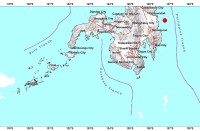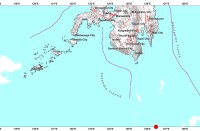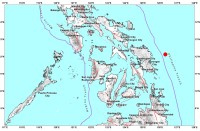
A House proposal to declare the province of Batanes as a responsible, community-based, cultural heritage and ecotourism zone is nearing enactment into law after a Senate panel endorsed its plenary approval before lawmakers went on congressional adjournment two months ago.
House Bill 6152, principally authored by Deputy Speaker and Batanes Lone District Rep. Henedina R. Abad, was approved by the Senate Committees on Environment and Natural Resources and on Tourism chaired by Senators Francis “Chiz” G. Escudero and Manuel “Lito” M. Lapid.
Senator Loren Legarda subsequently delivered the sponsorship speech for the plenary approval of the bill last February 1, 2016 before the congressional adjournment.
The House approved the measure on third and final reading last Oct. 9, 2015. Its counterpart measure in the Senate is SB 2981 authored by Sen. Paolo Benigno “Bam” A. Aquino IV.
Abad said both the government and the private sector recognize the potential positive impact of ecotourism in Batanes because of its vast experience in sustaining protected areas while creating jobs, increasing household incomes and generating revenues for local governments.
“Since 2014, Batanes has been experiencing a dramatic increase in the number of tourists visiting the province. While infrastructure, human capital, and tourism programs and products are being developed, the importance of sustaining the natural and cultural heritage of Batanes remains a key priority in the development of the province,” said Abad.
Abad further said the attendant negative impact of the developing tourism industry on the environment must be mitigated for the benefit of future generations.
House Bill 6152, or the proposed “Batanes Responsible Tourism Act,” provides it is the declared State policy to recognize, respect, and protect the rights of indigenous cultural communities to preserve and develop their cultures, traditions, and institutions, and considers these rights in the formulation of national plans and policies.
The State is further mandated to promote a tourism industry that is ecologically sustainable, responsible, participative, culturally sensitive, economically viable and equitable for local communities.
Towards this end, the Province of Batanes is hereby declared a cultural heritage and ecotourism zone. It shall be accorded priority development by the Department of Tourism (DOT) and shall be subject to the rules and regulations governing the development of cultural heritage and ecotourism zones.
The promotion of the following inherent values and characteristics which influence the uniqueness of the Ivatan culture and the beauty of the islands of Batanes shall be pursued in the development and management of the tourism industry in the province: the integrity of its ecology and environment; the richness of its natural and cultural heritage; and the resilience of its indigenous social institutions.
The Act shall cover the same boundaries as provided in Section 3 of Republic Act No. 8991, otherwise known as the “Batanes Protected Area Act of 2000”.
The DOT, in coordination with the Department of Environment and Natural Resources (DENR), the National Commission on Indigenous Peoples (NCIP), and the National Commission for Culture and the Arts (NCCA), shall assist the Province of Batanes in the formulation of the Provincial Tourism Development Plan that shall be complemented by a set of guidelines and standards for a responsible, community-based ecotourism.
The Batanes Tourism Development Plan shall ensure the preservation of the natural sites, the cultural and historic significance of identified tourist attractions, and respect for Ivatan culture and traditions.
The plan shall include the following components: carrying capacity of sites; specific site assessments; identification of strategic priorities; product development for local income generation; and capacity-building for local communities so residents therein can ably manage economically viable and responsible, community-based ecotourism business enterprises.
Moreover, the DOT shall closely coordinate with the provincial and municipal governments of Batanes, as well as with the regional and provincial offices of all relevant national government agencies, such as the DENR, the NCIP, the NCCA, the National Historical Commission (NHC), the National Museum, the Department of Labor and Employment (DOLE), the Department of Public Works and Highways (DPWH), the Department of Transportation and Communications (DOTC), the Department of Agriculture (DA), the Department of Science and Technology (DOST), the Department of Education (DepED), the Department of Trade and Industry (DTI), the Department of the Interior and Local Government (DILG), the Philippine National Police (PNP), the Maritime Industry Authority (MARINA), and the Philippine Ports Authority (PPA) in the implementation of the Act.
Source: http://www.congress.gov.ph







